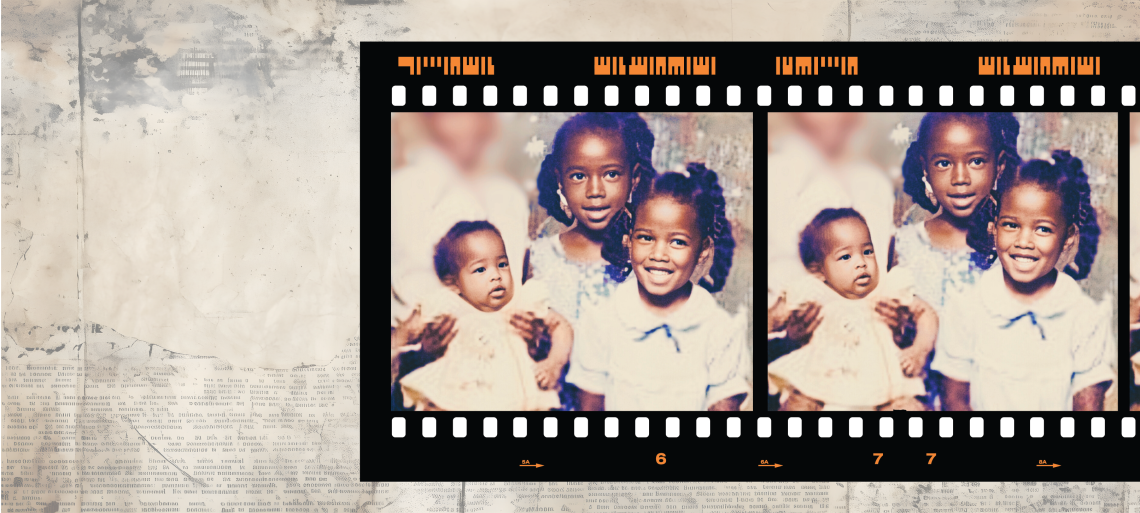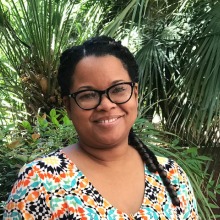
I manage Bipolar I Disorder and PTSD. My name is Laqwanda Roberts-Buckley. I’m the Mental Health & Wellness Specialist here at UA. I share my mental health journey with people quite often. However, I rarely sit down with the people who supported me the most throughout my wellness journey: my older sisters Marjorie and Cookie. I decided to interview them to share their perspectives.
Discussions like this can sometimes only focus on the person who is ill. What impact would you say my illness had on you initially? The conversation below centers on a major mental health crisis I experienced which led to my first psychiatric hospitalization. At the time, my family was unaware of my illness.
COOKIE: It wasn’t shocking, given the way we grew up. We all had traumatic events that took place. It hit us one way or another. I was scared. My little sister was missing and that is a feeling that no one prepares you for in life. As a big sister, I was used to being a problem solver, but this time, there was nothing I could do initially. There were more tears and questions more than anything. Time stands still even when you are moving, you know. As a mom, it hurt me to know that you would have to go through the pain of not being able to raise your child due to your illness because you needed to focus on your wellness. I couldn’t make that feeling go away for you. I didn’t feel like the big sister I’ve always been.
MARJORIE: I was sad. Now, you have to look at it like this. You were sick and we didn’t know you were sick. We thought you were missing. I was scared. We didn’t know where you were. I was working full-time and working on my degree. It was overwhelming. It was traumatizing. My kids were traumatized, too. I had to retake a course the next semester because I just couldn’t. That’s why it is always important for families to really look at the impact that their loved one’s experiences have on them personally.
When we found you, I can’t say that I felt better. Now I was thinking: What do I do next? I have to make sure she is cared for, and she has what she needs for her recovery. I was lost at times, and I had to own up to that for my own well-being.
As the years went by, what was the most challenging thing in the process for you?
COOKIE: Honestly, that you felt like you couldn’t come talk to us. We went from finding out where you were to trying to figure out what to do next. And honestly, we didn’t always know what to do next. It comes to a point where you have to be real with yourself and say that you don’t know. Saying I didn’t know helped me remove some of that internal pressure of needing to be the fixer. I was doing the best that I could. I had to acknowledge that when we were all struggling, we were doing the best that we could. And sometimes the best that you can do doesn’t make what you are experiencing go away. Then you realize this is going to be a long-haul situation.
MARJORIE: Seeing my best friend going from being confident to doubting who she is and what she’s good at and not believing in herself. That was hard for me because that was completely different from who I knew.
You were losing friends and trying to find new friends. Trying to find the right medications, having side effects. It felt like I was sick too. I wanted to take it away from you, but I couldn’t take it away.
At this point in the interview, we all paused and took deep breaths together. Hearing my sisters’ voices crack was an important reminder to me that they experienced a lot of pain as I recovered. I’ve never experienced the things that they endured supporting me. Although these conversations are natural for me, they could still be quite triggering for them. So we decided to shift the tone of the conversation for all of our mental health.
What kept you from getting lost in all the negative things that were taking place?
COOKIE: You right. You can get caught up, so you have to look out for those funny moments. They exist. When the 3 of us lived in the same area just going out or doing things around the house was fun. That time it was so hot, and the AC went out on my car. We just went outside and fixed it. We laughed so hard that day because we were just trying our best to get it done and you couldn’t tell us anything.
Seeing you be that little sister who had the energy to go shopping and throw clothes in the basket, knowing I would pay for them, would make my day. I didn’t mind because I knew you shopping again meant you wanted to leave the house and we could leave the house again.
MAJORIE: I made sure I did the things I enjoyed. But I always let Qwanda know that if she needed me, to just text me. Watching you get better helped me get better as well. We would have cappuccinos and watch the news before I would go to work. Those moments gave us balance. Every day was not sunshine, but we had to remember that rainbows pop out when it’s raining too.
First off, what would you say to someone supporting a loved one learning to manage a mental health condition?
COOKIE: Don’t wait on it. Ask questions, and don’t deny what they are feeling. You have to validate what they are experiencing. You also have to make sure that you are okay. I was going through life as well so there was a limit to what I had to give at times. As a big sister, it hurt not being able to do all the things for Qwanda. However, I knew if I didn’t see about myself, there would be no way I could help her.
MARJORIE: I agree with Cookie. Also don’t tell the person, “All you need to do is….” Offer resources. Ask, do you need me to take you? Family members and friends also need to have a self-care routine for themselves. You gotta have your own outlet. Your battery has to be charged. Laqwanda and I always did stuff together. She lived with me while she was in college. But when she got sick, I knew I had to continue to do the things that made me feel good. It didn’t mean that she was a burden. It meant that my wellness was just as important as hers.


